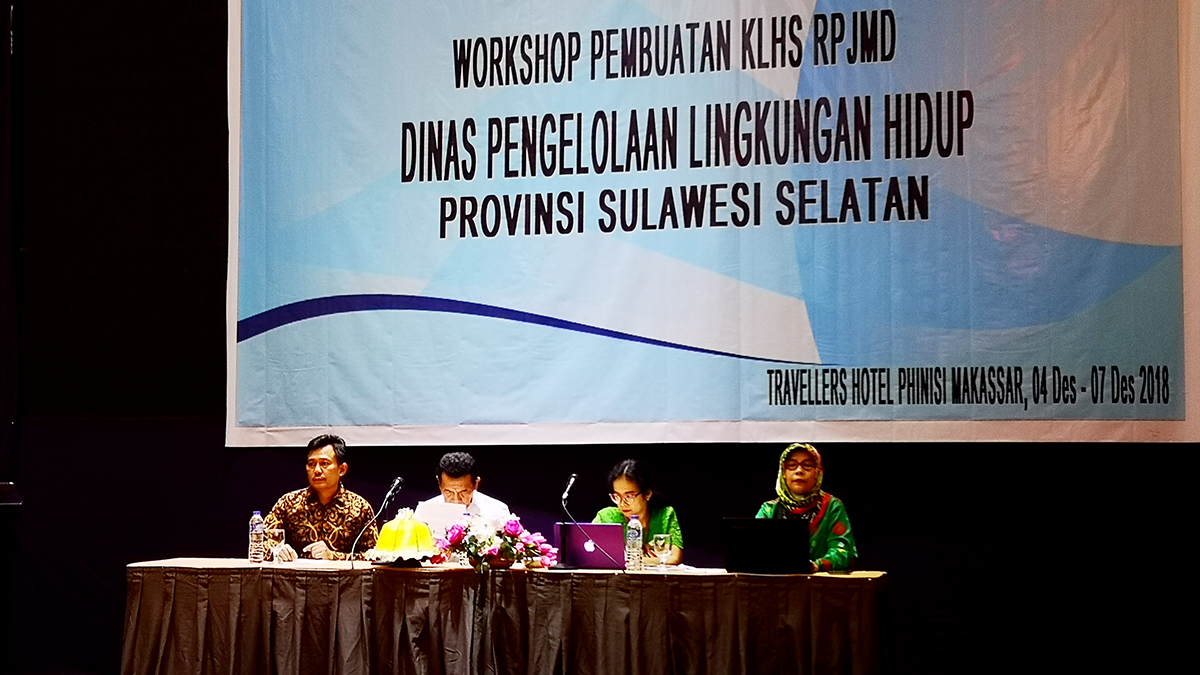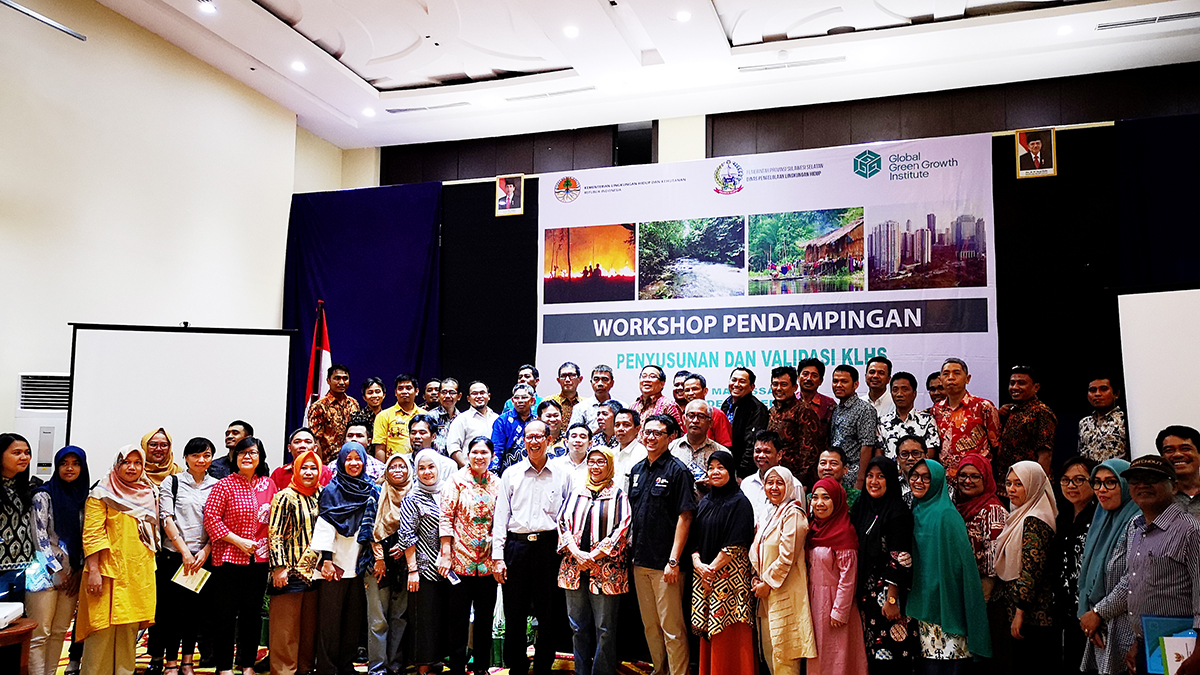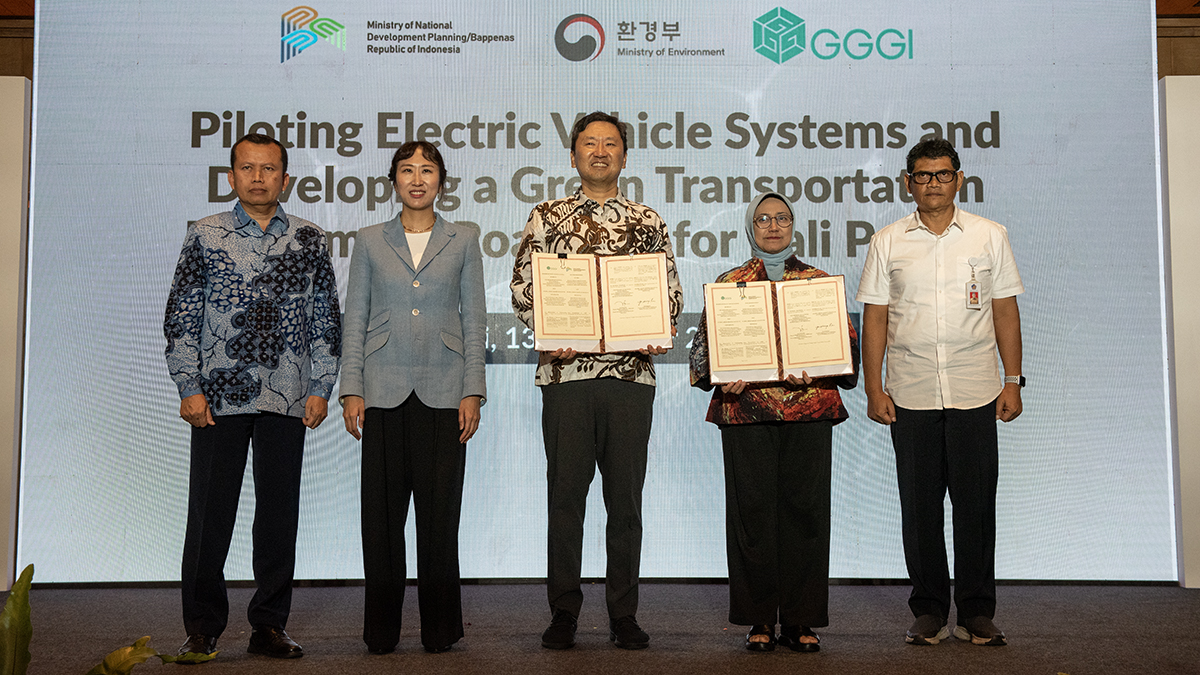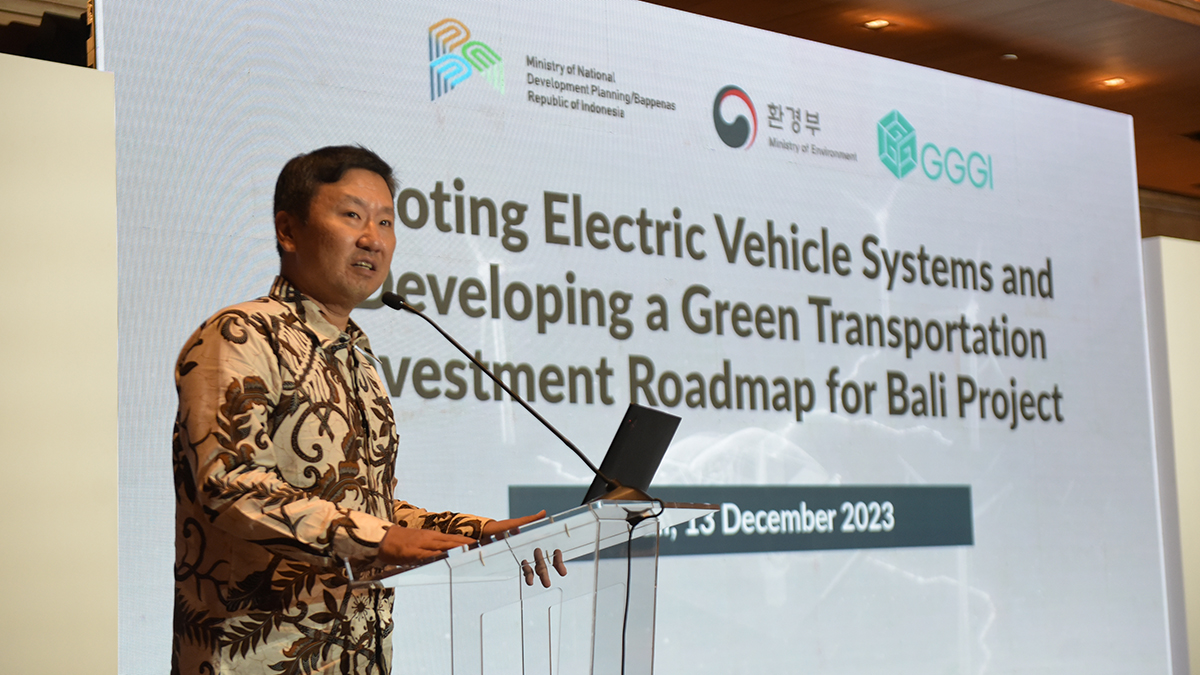Strategic Environmental Assessment (SEA) Clinic Workshop for Regional Governments in Eastern Indonesia
The Directorate of Pollution Impact Prevention for Regional and Sectoral Policies (PDLKWS) of the Ministry of Environment and Forestry (MoEF) with the support of the Global Green Growth Institute (GGGI) and the South Sulawesi Provincial Environment Office (DLH Sulsel), conducted a Strategic Environmental Assessment (SEA) Clinic Workshop in Supervising SEA process for Development Plans and Spatial Plans on 5 – 7 December 2018 at the Travellers Hotel Phinisi in Makassar, South Sulawesi.
The workshop aimed at ensuring SEA process and mechanisms for development and spatial plans prepared by SEA Taskforces (Pokja KLHS) from the participating local governments are of high quality, and follow the approach advised by the current laws and regulations. The workshop also updates the local SEA taskforces involved in the development of their respective SEAs with the latest procedures, mechanisms, and technical approaches, especially the ones related to carrying capacity, environmental impact prevention, and others of the six SEA contents (article 13 of PP 46/2016), as well as the Sustainable Development Goals (SDG) targets as mandated by the Minister of Home Affairs (MoHA) Decree No 7/2018.
The three-day agenda of the workshop featured various experts, professionals and officials from governments, universities and other institutions. The featured lineup of professionals and officials ensures the promotion of thorough understanding of the current law and regulations on SEA procedures and mechanisms and are able to interpret necessary technical requirements from relevant regulations when conducting future SEAs for both development and spatial plans. The experts on the other hand, which mainly came from universities and research centers, gave insights in developing the use of analysis of Environmental Carrying Capacity and Assimilative Capacity as parts of SEA methodology.
Local Development Planning Agencies (Bappeda) from Central Java and South Sulawesi which have conducted their respective SEAs were also featured to share their experiences in developing the SEA documents accordingly. With the successful efforts in integrating SEA recommendations into their Regional Midterm Development Plans (RPJMD), other regions across the country are expected to follow suit to reach the standard and objectives prescribed by the current regulations. On the note of converging towards an optimal, both Dr Fatma Djuwita from PDLKWS Directorate of KLHK and Yudhi Prakoso from the Directorate General of Regional Development of MoHA highlight an example that “independently, South Sulawesi and Central Java ‘s SEA RPJMD documents are currently the better-practice examples in terms of procedures, approaches and contents, including integration into the respective Regional Midterm Development Plans (RJPMD). But the best practice SEA is when it could change the mindsets of decision makers in the localities, from ‘brown-development’ into ‘green-development’, or with economic incentives, known as green growth. This will eventually lead to sustainable development.”
The workshop then concludes for further standardized and consistent procedures and assessment forms of SEA validity reviews at both the provincial and ministerial (KLHK) level, including increased involvement of SEA experts from universities and private sectors.





